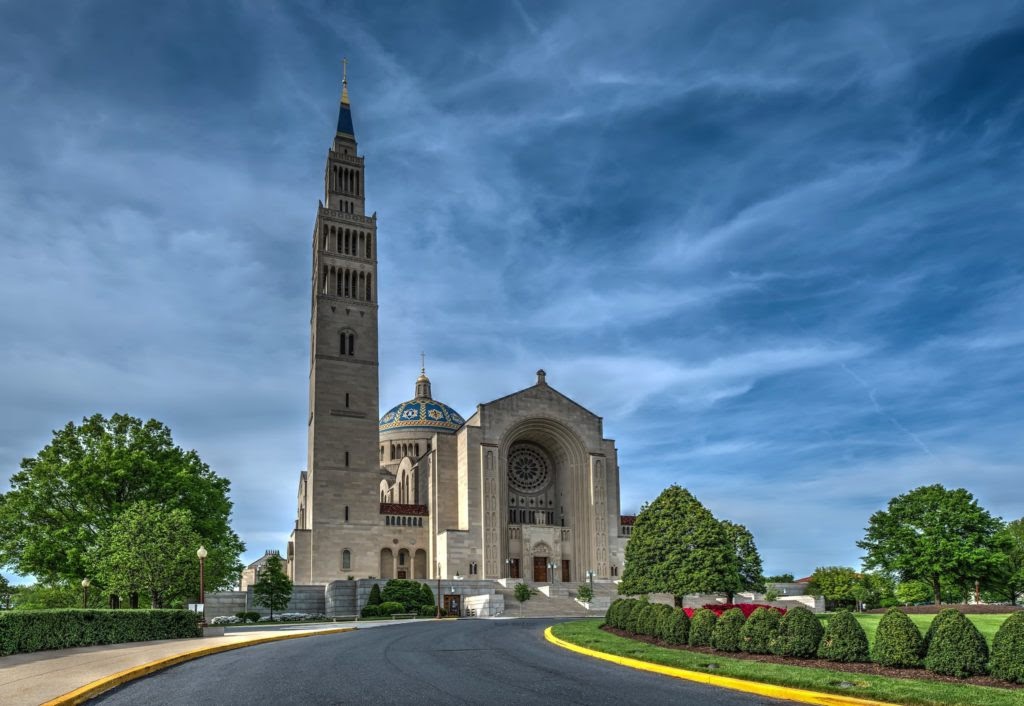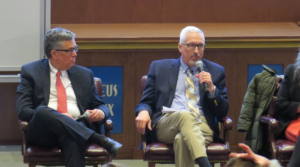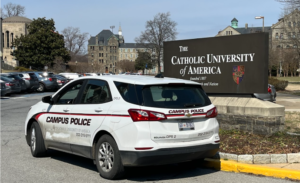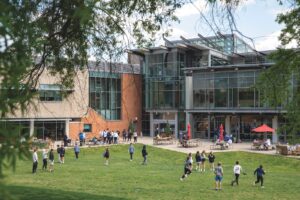DC Law Banning Large Religious Gatherings Found Unconstitutional

Image courtesy of DCist.com
Eduardo Castillon
DC Law Banning Large Religious Gatherings Found Unconstitutional
On March 25, Federal Judge Trevor N. McFadden ruled against the D.C. law capping religious gatherings to 250 people or 25% capacity, declaring it unconstitutional. The removal of the restriction comes after a period of pushback against the District’s regulations from religious communities.
It was the 250 person cap that originally settled a lawsuit filed by the Archdiocese of Washington against D.C. Mayor Muriel Bowser. The lawsuit was a response to a previous cap of 50 people or 50% capacity, whichever was smaller. The archdiocese took particular issue with this restriction because it aimed solely at religious gatherings, as opposed to commercial businesses which faced only percent capacity restrictions.
The lawsuit argued against the believed double-standard in the mayor’s choice of regulations: “…for public libraries, laundromats, retail stores, restaurants, tattoo parlors, nail salons, fitness centers, and many other establishments, the District imposes capacity-based limits, rather than hard caps.”
Capitol Hill Baptist Church also filed a lawsuit last year against Mayor Bowser’s restrictions. They argued it was hypocritical of the mayor to, while restricting even outdoor religious gatherings at the time, exempt the larger gatherings for the Black Lives Matter protests that year. The church’s lawsuit received support from 34 Republican congress members and was eventually ruled in favor of by a federal judge. It also prompted the department of justice to also issue a statement of interest against the city’s restrictions.
At the time, Mayor Bowser and D.C. Attorney General Karl Racine argued that, “The public’s interest in limiting the spread of a highly contagious disease far outweighs plaintiff’s interest in holding regular services attended by hundreds of people at incalculable cost to the rest of the community”
Now that the 250 person and 25% limit has been lifted, the District has joined with the 37 other states that do not place a percentage or numerical limit on religious services. Like in these other states, places of worship will be responsible for their own COVID-19 safety procedures. The federal court found that with the Basilica of the Immaculate Conception, the largest Catholic Church in the U.S., could seat three thousand people, but with the old 250 cap could only have “about eight percent of its capacity.”
In the same court memorandum, Judge McFadden wrote, “The District would no doubt acknowledge that there is risk attendant in many activities it has classified as “essential,” such as picking up a bottle of wine or takeout from a local restaurant….But the District has permitted essential businesses to stay open (often with less-onerous restrictions) because the public’s need for those things apparently outweighs the risk. On the other hand, the District’s restrictions have not recognized religious exercise as essential in the same way.”
The legislative struggle on COVID-19 procedures in D.C. is just one case of tensions rising between pandemic authorities and religious communities. In Lakewood, New Jersey, fifteen people were arrested and charged for attending an Orthodox Jewish funeral for a local rabbi. In the United Kingdom, a Good Friday service was interrupted by South London police who spotted some worshippers not wearing masks and not properly socially distancing. “As such, officers made the decision that it was not safe for that particular service to continue.”
The back and forth tensions leading up to Judge McFadden’s decision points out the importance of greater discussion on the balancing act legislators must play between pandemic regulations and their duties to the needs, even the more spiritual ones, of their constituents.





